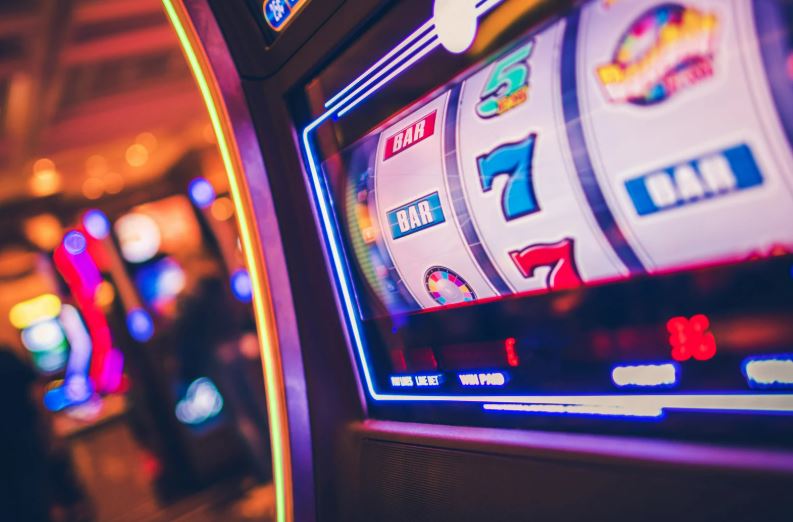Slot Machine Denominations: Does Changing Them Make a Difference?
If you choose to play slot machines, one of the first decisions you’ll make is how much to stake on each spin—and that starts with choosing a denomination. These values can range from as little as £0.01 to several pounds, but does switching between them actually affect how the game plays or what you might expect over time?
In this blog post, we take a closer look at what slot denominations really mean, how they relate to payout percentages and Return to Player (RTP), and whether higher denominations are treated any differently. We’ll also explore how your choice of denomination can influence the pace of your session and how long a balance might last.
If you’re curious about how denominations fit into the bigger picture, read on to find out more.
What Are Slot Machine Denominations?

Slot machine denominations refer to the value assigned to each credit or coin used in play. This value, combined with the number of lines and credits selected, determines the total stake per spin. For example, with a £0.05 denomination, choosing to play 20 lines with one credit per line results in a total stake of £1 per spin.
Both online and land-based slot machines typically offer a variety of denomination options, such as £0.01, £0.02, £0.05, £0.10, £0.50, or £1. It is important to note that the denomination represents the value of a single unit and is distinct from the total bet. The total stake is calculated by multiplying the denomination by the number of lines and credits played.
Understanding how these elements work together may help players select a stake level that aligns with their budget and preferred pace of play. With this foundation in place, the next consideration is whether changing the denomination has any impact on the game’s outcomes.
Does Changing Denominations on Slot Machines Matter?
Switching denominations changes the value of each credit, which usually changes the amount staked per spin. It does not alter the reels, symbols, payline structure or how the random number generator works.
Where denomination does make a difference is in the flow of a session. Higher values mean larger swings in the balance because each spin costs more, while lower values spread the same budget across more spins. Some players adjust the denomination to match how long they plan to play or how quickly they want their session to move.
There is one possible exception to the idea that denomination does not affect outcomes. On some machines, especially in physical venues, different denominations can be linked to different payout settings. We look at that point next.
How Do Denominations Affect Payout Percentages?
Payout percentage, often shown as RTP, describes how much a game is designed to return to players, on average, over a long period, over thousands or even millions of spins. In some land-based venues, different denominations of the same title can be configured with slightly different payout percentages, sometimes a few percentage points apart.
With online slots, that kind of variation by denomination is uncommon. The same game typically keeps a single RTP across all available values, so choosing £0.10 or £1 does not change the built-in percentage.
If a machine does offer different percentages by denomination, this will usually be noted in the game information or on the cabinet. If not, it is reasonable to assume the RTP is the same across values.
So, does a higher denomination mean better odds in practice?
Do Higher Denomination Slots Offer Better Odds?
Only if the machine has been set that way. Where a venue uses different payout settings for different values, a higher denomination might be assigned a higher RTP. That would increase the long-term expected return, although it does not guarantee any result in individual sessions.
Online, denominations rarely affect RTP, so the odds of any given outcome are the same regardless of whether you might choose £0.20 or £2 spins. What does change is the size of each result relative to your balance. Bigger denominations magnify wins and losses, smaller denominations smooth them out over more spins.
This is why the next section looks more closely at RTP itself, since it explains what those percentages really mean.
Understanding Return to Player (RTP) and Denominations
As briefly outlined earlier, RTP is a theoretical figure represented as a percentage that suggests the total stakes a game is designed to return to players, on average, over an extended period over thousands or even millions of spins. A slot advertised at 96% RTP is intended, in theory, to pay back £96 to players for every £100 staked when measured over a very large number of spins.
RTP is set by the game developer and shown in the rules or help area. For online slots, it usually remains the same across all denominations available in the game. In some land-based settings, different denominations may show different RTPs, so the cabinet or on-screen information is the best source of truth for that specific machine.
If you choose to consider the RTP, it is important to keep in mind that it is a statistical measure, not a prediction of what will happen in any individual session. Outcomes are always random, and even games with a high RTP can produce long losing streaks. For this reason, it’s best to treat slot play as a form of entertainment rather than a way to make money, and to set limits that reflect what you’re comfortable spending, regardless of the advertised return.
Do Denominations Change How Long Your Balance Lasts?
Yes, they can—because the denomination directly affects your stake size. A higher denomination increases the cost per spin, which means your balance may rise or fall more quickly. On the other hand, a lower denomination reduces the cost per spin, often allowing for a longer session on the same budget.
For example, if you have a £20 budget:
- At £0.20 per spin, you’d get roughly 100 spins before factoring in any wins or bonuses.
- At £2 per spin, that same budget would cover only about 10 spins on the same basis.
Of course, actual outcomes will vary depending on results, but this simple comparison shows how your choice of denomination can influence how long a session might last.
It’s also worth keeping in mind that denomination doesn’t affect a game’s built-in volatility or hit frequency—those elements are part of the game’s design, regardless of how much you stake. If you’re aiming for a more consistent experience, choosing a denomination that fits your budget and how long you’d like to play can help you manage your expectations and keep the experience enjoyable.
Play Slots Online at 666 Casino
If you’re thinking about exploring online slots, 666Casino offers a wide selection of games with denominations designed to suit a variety of budgets. You’ll find clear information on each title, including RTP, features, and game rules, so you can see how everything works before deciding to play.
As a site licensed by the UK Gambling Commission (UKGC), we follow strict standards to ensure games are fair and transparent. We also provide account tools like deposit limits and time reminders, so you can tailor your experience to best suit your preferences.
If you choose to sign up, registration is straightforward, and our support team is here if you need any help along the way. Feel free to explore the range of slot games we have available at 666Casino at your own pace.
*All values (Bet Levels, Maximum Wins, etc.) mentioned in relation to these slot games are subject to change at any time. Game features mentioned may not be available in some jurisdictions.
**The information provided in this blog is intended for educational purposes and should not be construed as betting advice or a guarantee of success. Always gamble responsibly.





